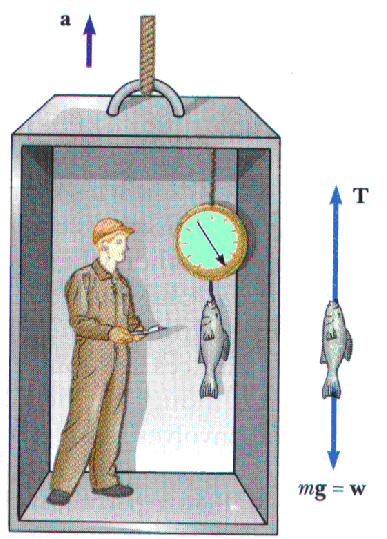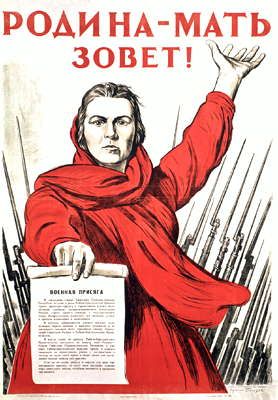The story of Reb Yekusiel Lepler from Kuntres Limmud Ha’Chassidus:
* * *
In the days of the Mitteler Rebbe, the knowledge of the students in the field of Chasidus was astonishing. The Rebbe had instructed all young men not burdened with earning a livelihood to study Chasidus at least three hours daily. In time, every chasidic community boasted a growing number of youthful scholars. Later many of these young scholars became mashpi’imand teachers in different communities. This had a marked effect on the local chasidim, since the study and knowledge of Chasidus promptly increased.
In the town of Lepli, there lived a chasid of the Alter Rebbe, a salt merchant by trade, named Reb Yekusiel. He was renowned as an oived (his first audience with the Alter Rebbe is recorded elsewhere) but his grasp of Torah, in general, and of Chasidus in particular, was extremely limited.
Once one of the young mashpi’im passed through Lepli and spent a week there, daily reviewing from memory a discourse of the Mitteler Rebbe. The discourses he discussed were extremely abstruse and profound. The young man was exceptionally gifted mentally and an eloquent speaker. Every word he uttered was sparkling and clear; his audience was very impressed. Reb Yekusiel, no great intellect, could not follow the discourses. He grieved bitterly and castigated himself for being so obtuse.
The famed chasid, Rabbi Shmuel Dov of Borisov, told me that Reb Yekusiel had described the incident to him. “Just imagine,” Reb Yekusiel said. “I was then about forty years old. For fifteen years I had visited the Alter Rebbe, and all that time I studied Chasidus to the best of my abilities. Suddenly, something new! A stripling, a mere chick, comes repeating the Rebbe’s discourses intelligently and enthusiastically; I listen and don’t understand. I can feel that the topics are deep, wonderful topics, but I don’t grasp a thing.
“Every day, when I heard the lad and couldn’t follow, I was deeply distressed. Every discourse struck me like a hammer. I berated myself and resolved to master those discourses. I asked the lad to repeat them for me over and over again. He even did his best to interpret them for me, but my head was like a lump of wood and my brain absorbed nothing. Three weeks I kept that young man at my home. My family cared for the store while I spent days and nights on end laboring to understand what the young man taught me. To my sorrow, it did no good. He finally left and I was like a foundering ship. I fasted and prayed, but to no avail. So, I went toLubavitch, to the Rebbe.
“For nine months, I hadn’t been in Lubavitch. I found a new world there—about fifty or sixty young men devoting long hours every day to Chasidus, reviewing the discourses and explaining them to each other. I arrived in Lubavitch on a Wednesday. That Friday, before Kabbalat Shabbat the Rebbe delivered a discourse, and the next day before Mincha a bi’ur [elucidation] on the discourse. I grasped the discourse and could repeat parts from memory, but the bi’ur was beyond me. To my utter amazement, the young men understood the bi’ur too. I was very troubled that I couldn’t grasp the bi’ur; I prayed all night and fasted the next day.
“On Monday I had an audience with the Rebbe. I told him all that had happened at home, the visit of the young man to Lepli, his reviews of the discourses that he had heard in Lubavitch, and that I understood the simpler ones but not those that discussed deeper subjects. I also mentioned that I had understood the discourse of Friday evening but not its bi’ur.
“The Rebbe replied, ‘Nothing stands in the way of will.’ He explained that though will is only a soul-power—not soul-essence—still it can control the soul to reveal the powers and senses in their essence. Will can certainly affect powers inferior to it, such as intellect and emotion, since it is their superior. When one truly wills, even his faculties are magnified.
“Having heard from the Rebbe that everything depends on my will, I decided to remain in Lubavitch until I would begin to understand. Through travelers by way of Lepli, I notified my family of my new plans and instructed them to operate the business in my absence. Four months I labored physically and spiritually to accustom myself to concentrate on one topic for hours without interruption, and to review a single subject scores of times. I am forever indebted to one young man, Efraim Smilianer, who reviewed the discourses with me many times in succession until I was able to comprehend them. Usually I would seclude myself in the basement of the Large Synagogue or in the attic. Finally, that Tishrei I felt like a new man. I had ‘scoured the pot’ and had become a receptacle for Chasidus. I then returned home.”
Before leaving Lubavitch, Reb Yekusiel had a most fascinating audience with the Mitteler Rebbe, but this is not the occasion for discussing it. From the account of Reb Yekusiel, we can glimpse a typical old-time chasid. When he was told in an audience that all depended on his will, he didn’t budge until he corrected his deficiency, regardless of any difficulties.
My grandfather, Rabbi Shmuel, told my father, Rabbi Sholom DovBer, that the Mitteler Rebbe had divided his chasidim into groups. Besides the general classifications of intellectuals and ovdim there were sub-categories. For each group he wrote special discourses and books. For one group ofovdim he wrote Shaar HaTeshuva VehaTefillah part I, for a second group, part II, and part III for a third. For one group of intellectuals, he wrote Shaar HaEmunah, for another Ateret Rosh, and for the highest group Imrei Bina. Shaar HaYichud and Shaarai Orah discuss general concepts and are intended for all chasidim. Shaar HaYichud is the key to Chasidus, and Shaarai Orah, the alphabet of Chasidus.
Once my father asked my grandfather a question in Imrei Bina, “Shaar Kriat Shema,” chapters 54-56, on the subject of “bread, oil, and wine” of Torah, Secret Torah and Secrets of Secrets, revealed and hidden and their intermediary. My grandfather explained fully and then said:
“Imrei Bina was written by the Mitteler Rebbe expressly for Reb Yekusiel Leplier. Reb Yekusiel was a clod. Though earlier he had an audience with the Alter Rebbe, and a rich one at that, still, ‘you cannot place a head on an other’s shoulders.’ He had a sensitive heart and prayed with warmth. When the Mitteler Rebbe returned from Little Russia and settled in Lubavitch, he devoted himself to teaching the young men Chasidus. Reb Yekusiel grew envious and longed to share their knowledge. He toiled strenuously until he was capable of understanding the most abstract subjects.
“Once I couldn’t understand a number of passages in Imrei Bina, in “Shaar HaTefillin,” chapter 32 concerning direct and reflected illumination, and chapter 37 concerning the creation of concept from its source. I worked over the problems and then had an audience with my father (the Tzemach Tzedek), to whom I presented my difficulties. He referred me to Reb Yekusiel who was in Lubavitch at the time and spoke of him at length. Among other things my father remarked that Imrei Binawas composed for Reb Yekusiel. I was to ask him my questions, and then repeat his answers to my father who would elaborate.
“Reb Yekusiel habitually spent hours daily in prayer, so I requested YosefMordechai the attendant to notify me when Reb Yekusiel had concluded. Later, after I finally questioned Reb Yekusiel, he pondered for a while and said, ‘I am a storekeeper. It is customary that before a storekeeper delivers the merchandise he receives payment. I have the merchandise. Pay the price and I will give it to you.’
“I asked him what payment he was demanding, and he answered that I review the discourse delivered that Shabbat. Whatever he didn’t understand I was to explain, and what I couldn’t, I was to ask my father. I agreed. He then solved my questions so clearly and systematically that I was amazed to hear such words from a man mediocre, if not actually simple, in his knowledge of Talmud. He was remarkably fluent in the profundities of Kabbalah and Chasidus, and he discussed them elaborately, with deep and broad explanations.
“When I repeated Reb Yekusiel’s replies to my father, he commented, ‘Reb Yekusiel is a living example of the Rabbinic saying4 that what you seek diligently you will find. He labored much and found much.’
“That evening Reb Yekusiel came to demand the stipulated payment, and I, for my part, reviewed the discourse. He paid close attention throughout. It is unforgettable, observing an old chasid listening to a discourse—every organ of his body listened! He asked that I be kind enough to repeat the discourse again at dawn the next morning, and I complied. At that time he presented his questions, most of which I had to refer to my father. I spent a week of utter delight with those queries and replies.
“From that time on, whenever Reb Yekusiel visited Lubavitch we spent many pleasant hours together. He distinctly remembered everything he had seen since his first visit to Liozna in the summer of 1786. He was fond of remarking, ‘Every week I have an audience in my mind with the Alter Rebbe, asking him whatever I wish.’ For he remembered every audience he had with the Alter Rebbe, the Mitteler Rebbe, and the Tzemach Tzedek. The Alter Rebbe had blessed him with longevity and he lived almost a century.”
Rabbi Shmuel Dov of Borisov extravagantly lauded Reb Yekusiel’s abilities, declaring that he had never encountered so penetrating an intellect and so sharp and orderly a mind. Reb Yekusiel possessed the priceless trait of deep love for intellectual effort and no obstacle could deter him in his studies. When concentrating, Reb Yekusiel literally shut his eyes and ears and permitted nothing in the world to disturb him.
My father (Rabbi Sholom DovBer) said to me, “The narrative my father (Rabbi Shmuel) recounted to me about Reb Yekusiel’s extraordinary abilities and his attainment of greatness only through tremendous personal endeavor, how he converted himself from a clod to a powerful thinker—affected me deeply in my own development.”
I have elaborated at such length here to demonstrate the fact that through genuine effort one can attain incredible intellectual heights. Everything depends solely on the person himself.






















